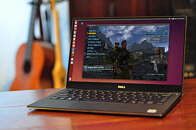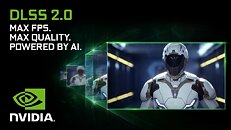
Simple Trick gets "The Finals" Running in Linux with Intel Arc Graphics
The Finals—a free-to-play online first-person shooter—has pulled in a large population of gamers across Windows PCs and current-gen gaming consoles since its surprise launch last month, but players on Linux Desktop + Intel Arc hardware were missing out on this experience...until very recently. Phoronix reports that Embark Studio's Unreal Engine 5-powered title has started to work in a Linux environment "thanks to Valve's Steam Play (Proton + VKD3D-Proton). With the latest Mesa driver activity, Intel Arc Graphics on Linux with their open-source driver can now handle this popular game." GamingOnLinux owner, Liam Dawe, created a post about this development, although he noticed a multitude of stability problems and glitches in-game, but was largely up and running with an AMD Radeon 6800 XT GPU on Mesa 23.3.3.
Phoronix's Michael Larabel noted some (Intel Arc-specific) feedback on GitLab: "when launching The Finals on Linux with Intel Arc Graphics using the default DirectX 12 renderer, it was reported that the game is stuck at a black screen for Intel Arc Graphics and then simply closes... Well, it's an easy fix and one that has come up before." He has witnessed similar problems with other games—notably Diablo IV and Cyberpunk 2077: "due to The Finals using Intel's XeSS upscaling tech but that not behaving well on Linux. The Windows game sees Intel Graphics being utilized and by default tries to leverage XeSS...Intel Arc Graphics on Linux can run The Finals when concealing the fact that it's Intel Graphics inside."
Phoronix's Michael Larabel noted some (Intel Arc-specific) feedback on GitLab: "when launching The Finals on Linux with Intel Arc Graphics using the default DirectX 12 renderer, it was reported that the game is stuck at a black screen for Intel Arc Graphics and then simply closes... Well, it's an easy fix and one that has come up before." He has witnessed similar problems with other games—notably Diablo IV and Cyberpunk 2077: "due to The Finals using Intel's XeSS upscaling tech but that not behaving well on Linux. The Windows game sees Intel Graphics being utilized and by default tries to leverage XeSS...Intel Arc Graphics on Linux can run The Finals when concealing the fact that it's Intel Graphics inside."




































